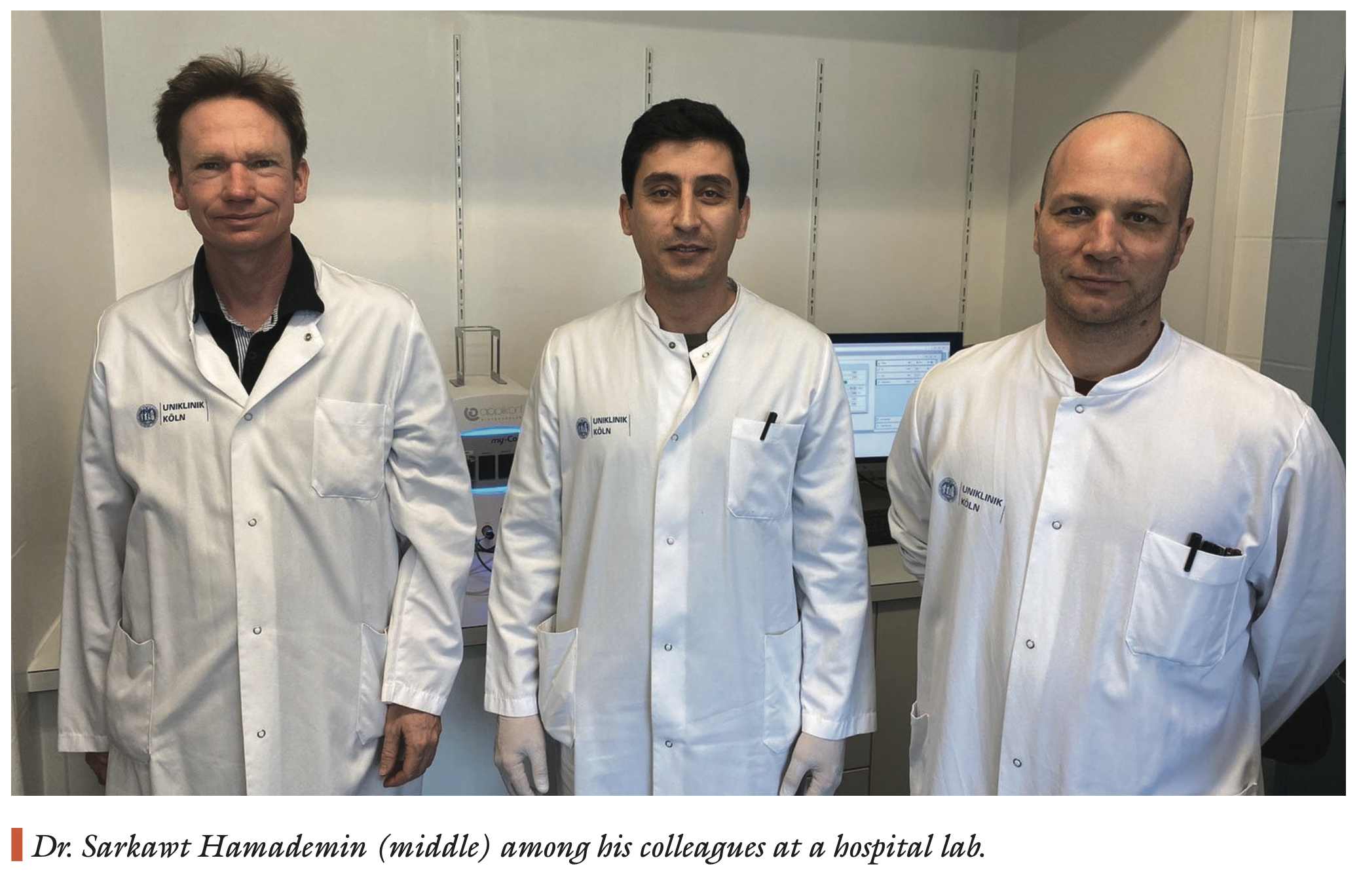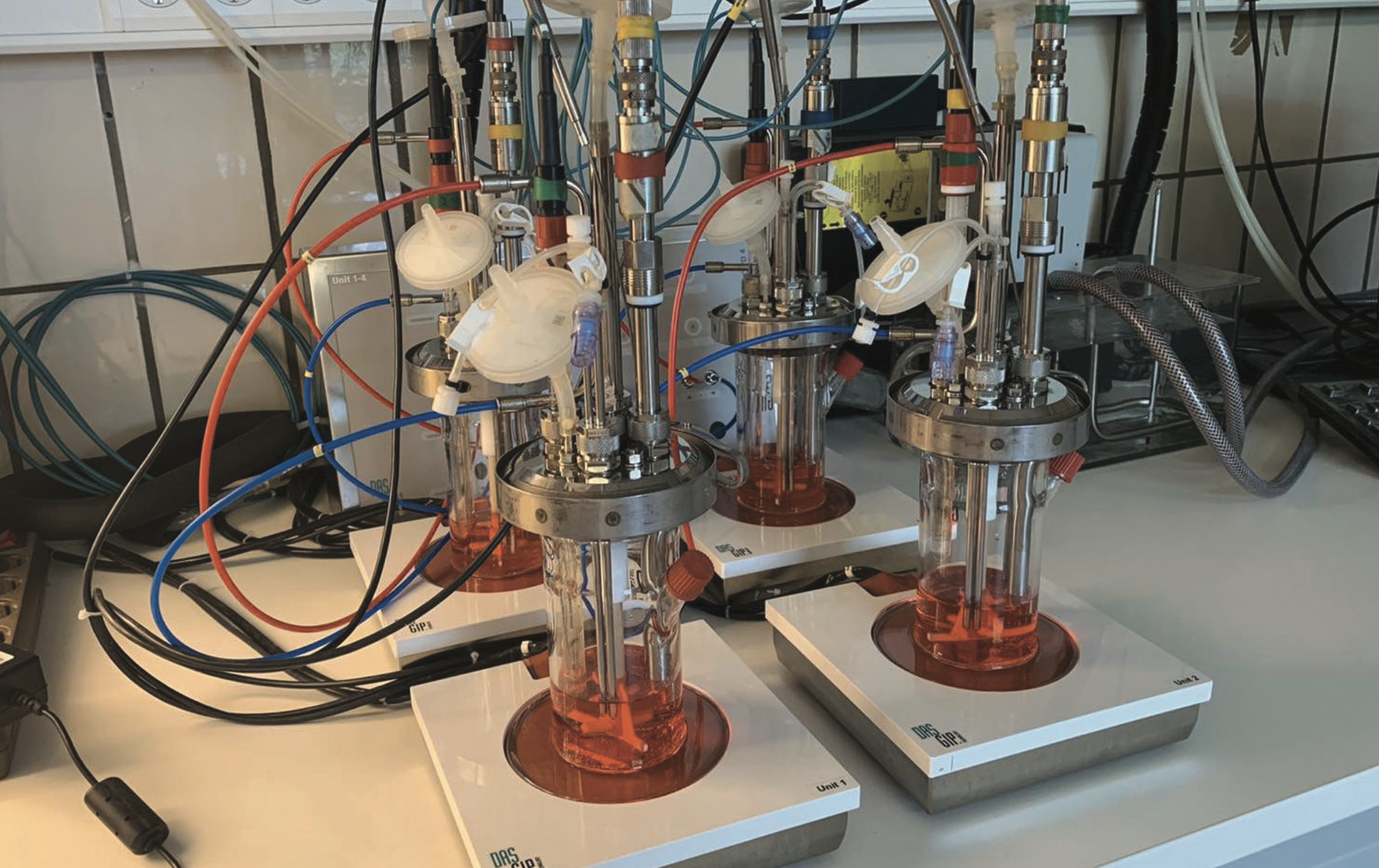A groundbreaking medical research project is underway in Germany, led by Dr. Sarkawt Hamademin, a distinguished medical researcher and professor at Soran University, in collaboration with a team of foreign researchers. Their collective effort focuses on the remarkable undertaking of regenerating human heart cells, marking a significant step forward in the field of regenerative medicine.
In a recent interview with Kurdistan Chronicle, Dr. Hamademin shed light on the ambitious undertaking. “Our research aims to regenerate human heart cells through the cultivation of human stem cells in a laboratory setting, transforming these stem cells into the primary capillary cells found within the human heart,” he explained.
The inception of this project can be traced back to 2016, when the team achieved a breakthrough in cultivating high-quality stem cells in substantial quantities. Subsequently, they embarked on the process of steering the growth of these cells towards becoming human heart cells. The results of their laborious work were published in the prestigious scientific journal Theranostics, further affirming the significance of their endeavor.

The tangible outcomes of their research in recent months were made evident through a demonstration of laboratory-engineered heart tissue contraction and deceleration.
Dr. Hamademin emphasized the immense importance of the research. “This project is monumental in several ways. Firstly, we initially endeavored to regenerate stem cells in a laboratory setting, a feat that took approximately one year to achieve. Subsequently, we moved on to the regeneration of human heart cells in significant quantities, encompassing a variety of human heart cell types,” he reported. “Our work was published in a highly regarded international scientific journal, prominently mentioning Soran University and the Kurdistan Region of Iraq.”
“Furthermore, our work is progressing towards regenerating human blood vessel cells, specifically endocylin cells,” Dr. Hamademin added. “This aspect of our research is currently in the printing stage and is expected to be published in the upcoming months.”
Revolutionizing regenerative medicine
The Kurdish researcher underscored the broad implications of this pioneering project. “It will significantly enhance our understanding of human heart cells and blood vessels. Secondly, it provides a valuable means of testing new drugs without resorting to human or animal trials, thereby addressing ethical and philosophical concerns associated with scientific research. This development holds the potential to eliminate the need for aborted fetuses or animal testing in medical experiments. And finally, in the future, it may pave the way for the direct implantation of cells or lab-engineered tissues into the hearts of stroke patients, potentially reducing or even eliminating the consequences of heart attacks.”

The far-reaching impact of this research becomes even more evident when considering the rising prevalence of heart disease. Dr. Hamademin underscored that, “given the expected increase in the number of people suffering from heart diseases in the coming years, this technology promises to be a game-changer for researchers and healthcare professionals in their quest for innovative treatments. Those with heart disease, particularly heart attack survivors, are poised to be the primary beneficiaries. Furthermore, it offers research institutions an alternative approach to scientific investigations, minimizing reliance on human and animal subjects, thereby contributing to environmental sustainability and aligning with the principles of nature preservation and animal rights.”
As Dr. Hamademin and his international team continue their groundbreaking work, their efforts hold the promise of revolutionizing the field of regenerative medicine, ushering in a new era of medical research and treatment possibilities. Their dedication to advancing science while upholding ethical standards positions them as pioneers in the quest for healthier hearts and improved medical research practices.
Biography of Dr. Sarkawt Hamademin
Dr. Sarkawt Hamademin completed his primary, secondary, and high school education in Rawandiz, Erbil Governorate. He earned a bachelor’s degree in biology from the College of Science Education at Salahaddin University and went on to earn a master’s degree in biology from the College of Science, Salahaddin University. His educational journey culminated in a Ph.D. in Medical Physiology and Regenerative Medicine, which he obtained from the Center of Physiology and Pathophysiology within the Faculty of Medicine at the University of Cologne in Germany.
Mohammad Dargalayi is a journalist and photographer with 13 years of experience. He is a member of IFJ Global.

